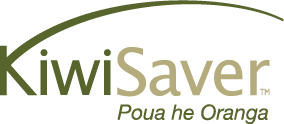 Ngā utu peke mō ngā kaupapa KiwiSaver me ngā tahua tautuku
Gross pay for KiwiSaver schemes and complying funds
Ngā utu peke mō ngā kaupapa KiwiSaver me ngā tahua tautuku
Gross pay for KiwiSaver schemes and complying funds
What
Who
When
Gross pay is different for KiwiSaver schemes and complying funds. The difference affects how you:
- deduct KiwiSaver contributions from your employee’s pay
- work out the employer contributions you need to pay.
Payments included in gross pay for KiwiSaver schemes
For KiwiSaver schemes, gross pay is total salary or wages including:
- bonuses
- commission
- extra salary
- gratuities
- overtime
- any other remuneration of any kind before tax, for example taxable benefit allowances.
What’s not included in gross pay for KiwiSaver
Usually you'll pay employer KiwiSaver contributions on gross pay. But there are some salary components you exclude from gross pay. These include:
- redundancy payments
- the value of providing board, lodging, use of a house or part of a house, or an allowance instead of accommodation
- expenditure or allowances for accommodation and living costs overseas
- free or discounted shares received under an employee share scheme. This is also known as a share purchase agreement.
- payments under a Voluntary Bonding scheme funded by the Ministry for Primary Industries, Te Whatu Ora – Health New Zealand or the Ministry of Education
- honoraria payments paid by Fire and Emergency New Zealand to a volunteer.
Keep records of any employee income exempt from KiwiSaver
You'll need to keep records of any employee income that is exempt from KS contributions. We'll confirm this information annually with you.
Gross pay and complying funds
Gross salary or wages is different for your employees in complying funds. You work out their deduction and your contribution using gross base salary or wages. This means you exclude:
- bonuses
- commissions
- other amounts not included in the employee's gross base salary or wages (these should be set out in the fund's trust deed).
Last updated:
28 Apr 2021

